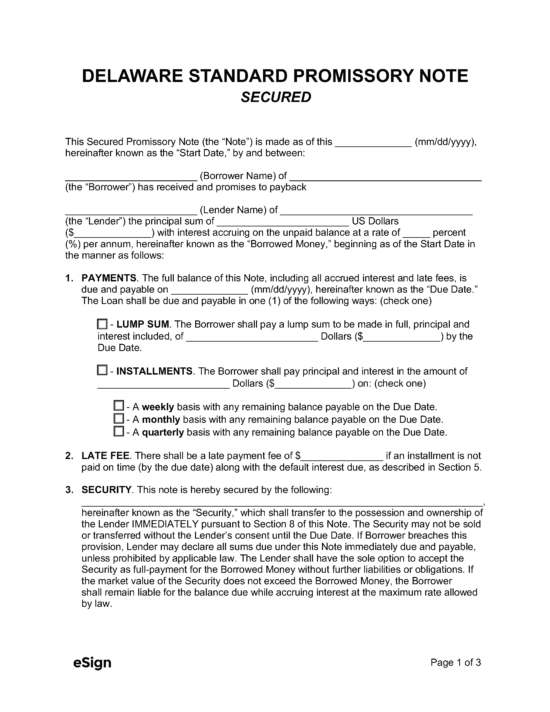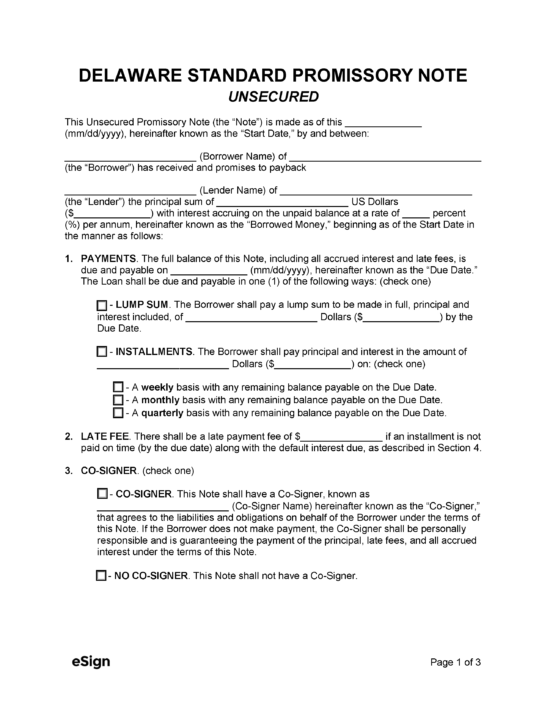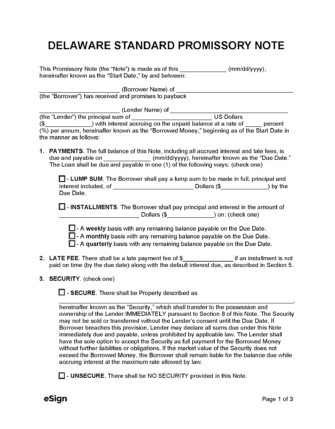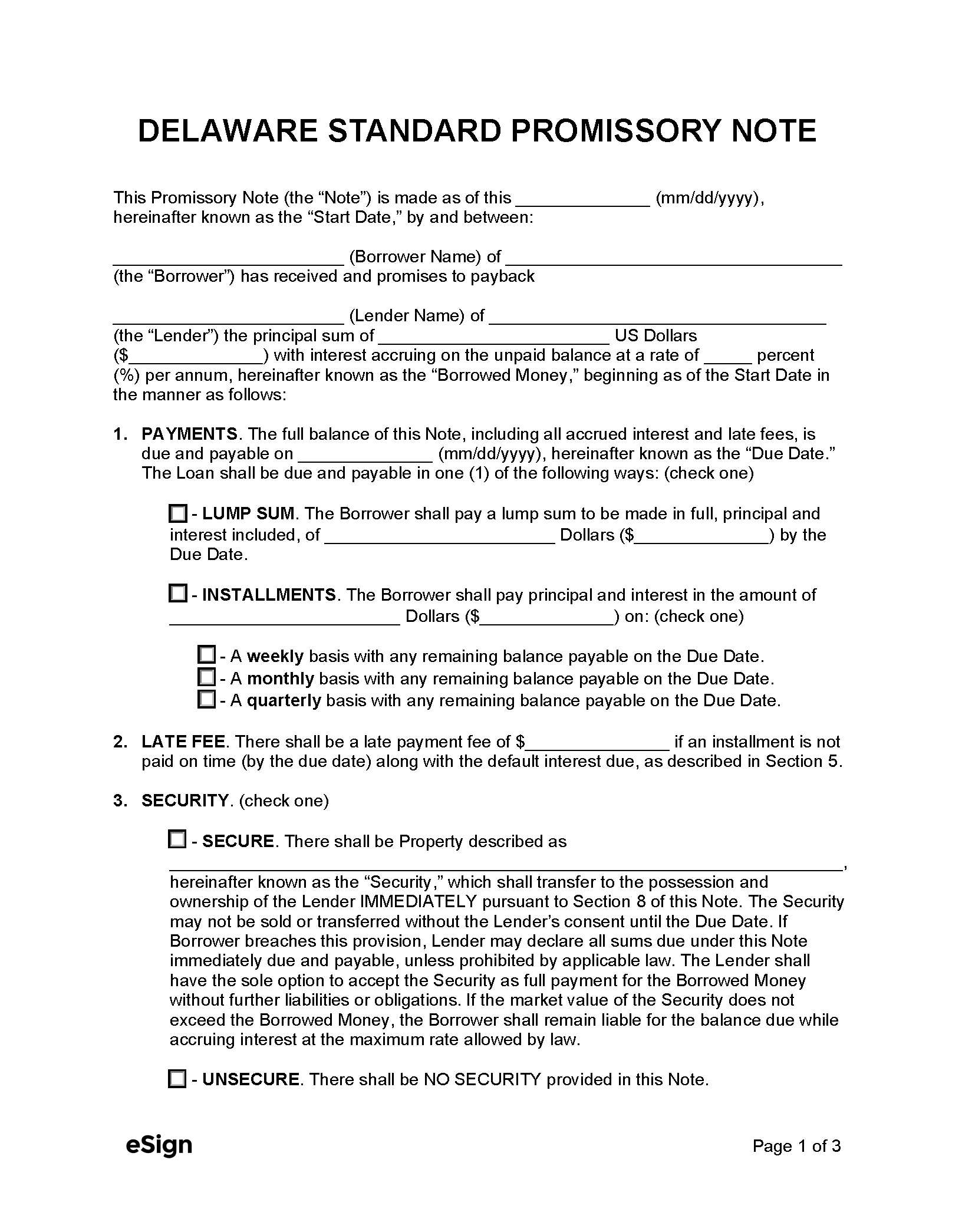Types (2)

Download: PDF, Word (.docx), OpenDocument

Download: PDF, Word (.docx), OpenDocument
Laws
- Interest & Usury Laws: Title 6, Chapter 23
- Usury Rate (§ 2301(a)): In excess of 5% over the Federal Reserve discount rate.
- Usury Rate for Unsecured Loans over $100,000 (§ 2301(c)): No maximum.
- Usury Rate for Life Insurance Policy Loans (§ 2911(b)(1)): 8% or an adjustable maximum interest rate as permitted by law.
- Usury Rate for Secured Pawnbroker Loans (§ 2316): 30% per month.

